Hybrid is certainly a buzzword these days, and for good reason. With more and more companies adopting a flexible work arrangement, it was important for us to get a better understanding of how our community and professional peers feel about this shift. We wanted to learn how companies are making hybrid work, and whether this trend is here to stay.
We looked at several factors, including job function, seniority level, industry type, and company size.
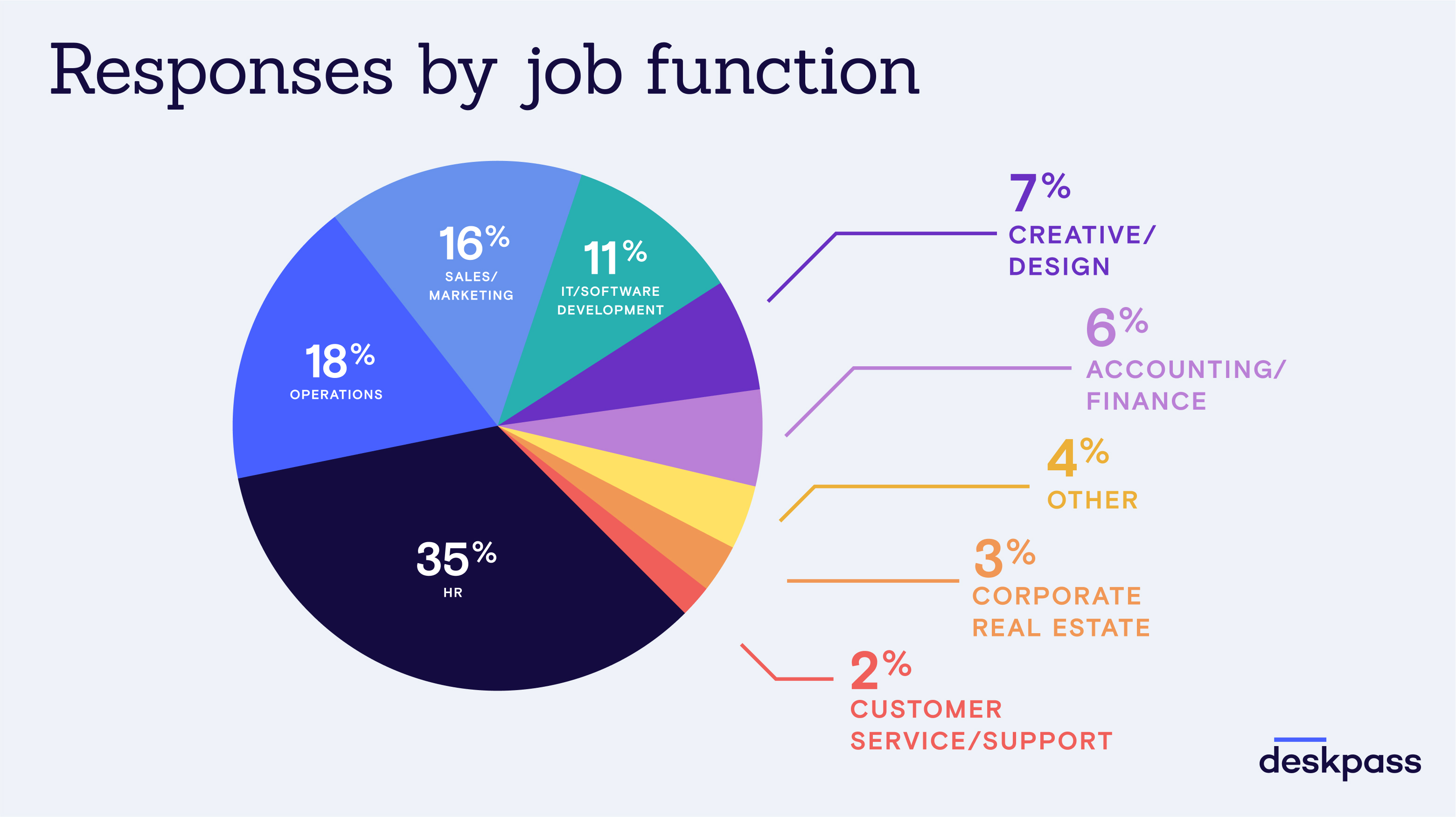
COVID’s impact on hybrid work
Hybrid work isn’t a new concept—companies like Buffer, GitHub and Zapier have long-since operated remotely—but up until very recently, it wasn’t the norm. Thirty percent of respondents in our survey indicated their companies already had a hybrid work policy in place pre-pandemic. Our belief is that COVID accelerated what was already an emerging trend toward a hybrid work model.
From an employer perspective, hybrid work is both convenient and cost-saving. By utilizing coworking spaces, companies save on overheads like rent, electricity and infrastructure and instead, invest that money into well-being benefits and other programs that boost employee satisfaction and retention such as employee engagement and team building and upgrades to remote work collaboration tools. According to 61% of respondents, hybrid work provides a means for their companies to attract and retain top talent.
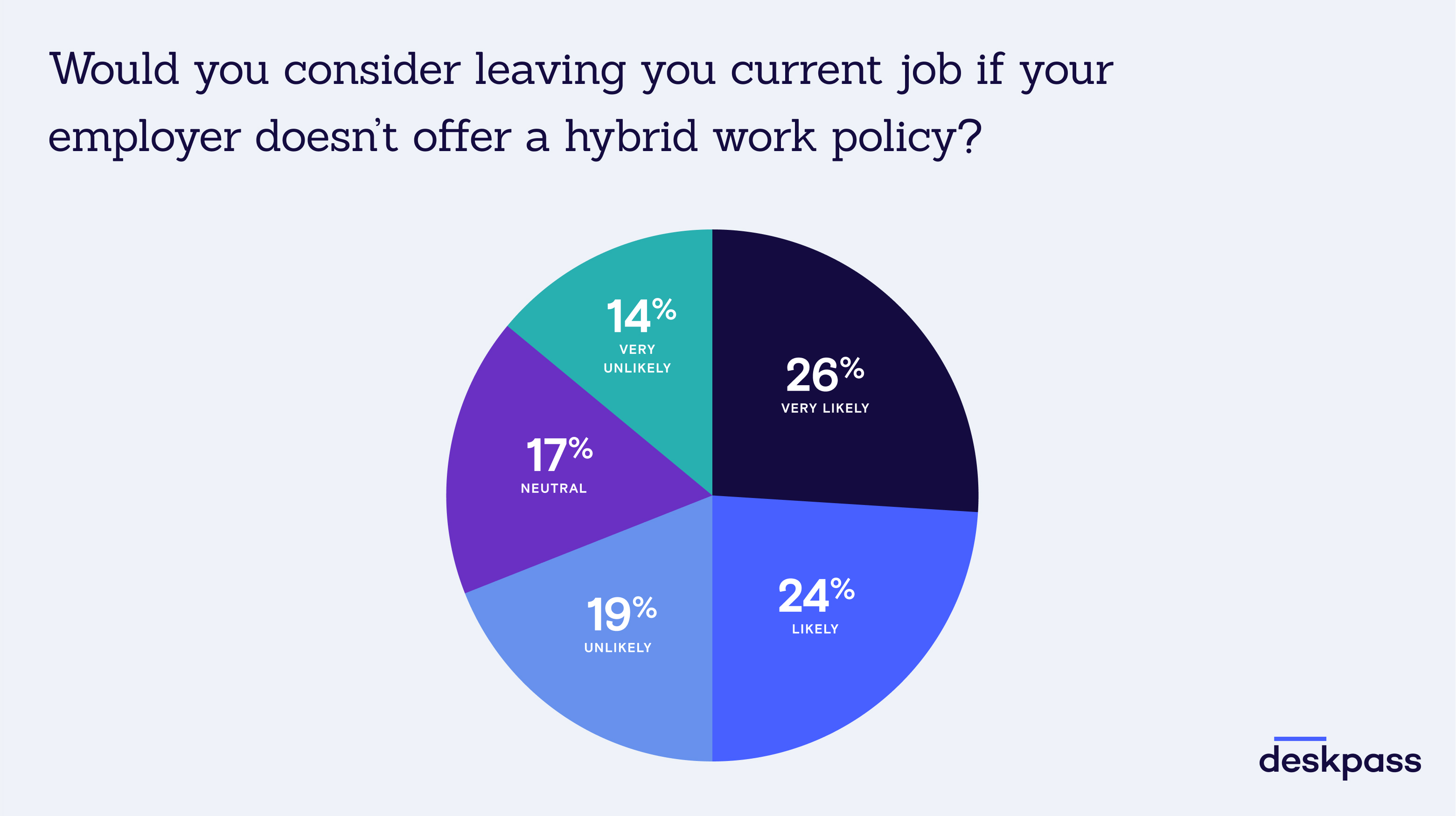
Health and Happiness
Health and safety are primary drivers of hybrid adoption, including mental health. Of the respondents who indicated their company was hybrid before Covid, 70% cited ‘better work/life balance for employees,’ as the top reason for embracing this more flexible work model.
Hybrid work is linked with increased mood and motivation, leading to higher productivity. Collaboration tools like Slack allow teams to communicate efficiently and in real-time, while Zoom and other video technology platforms offer a safe alternative to in-person meetings.
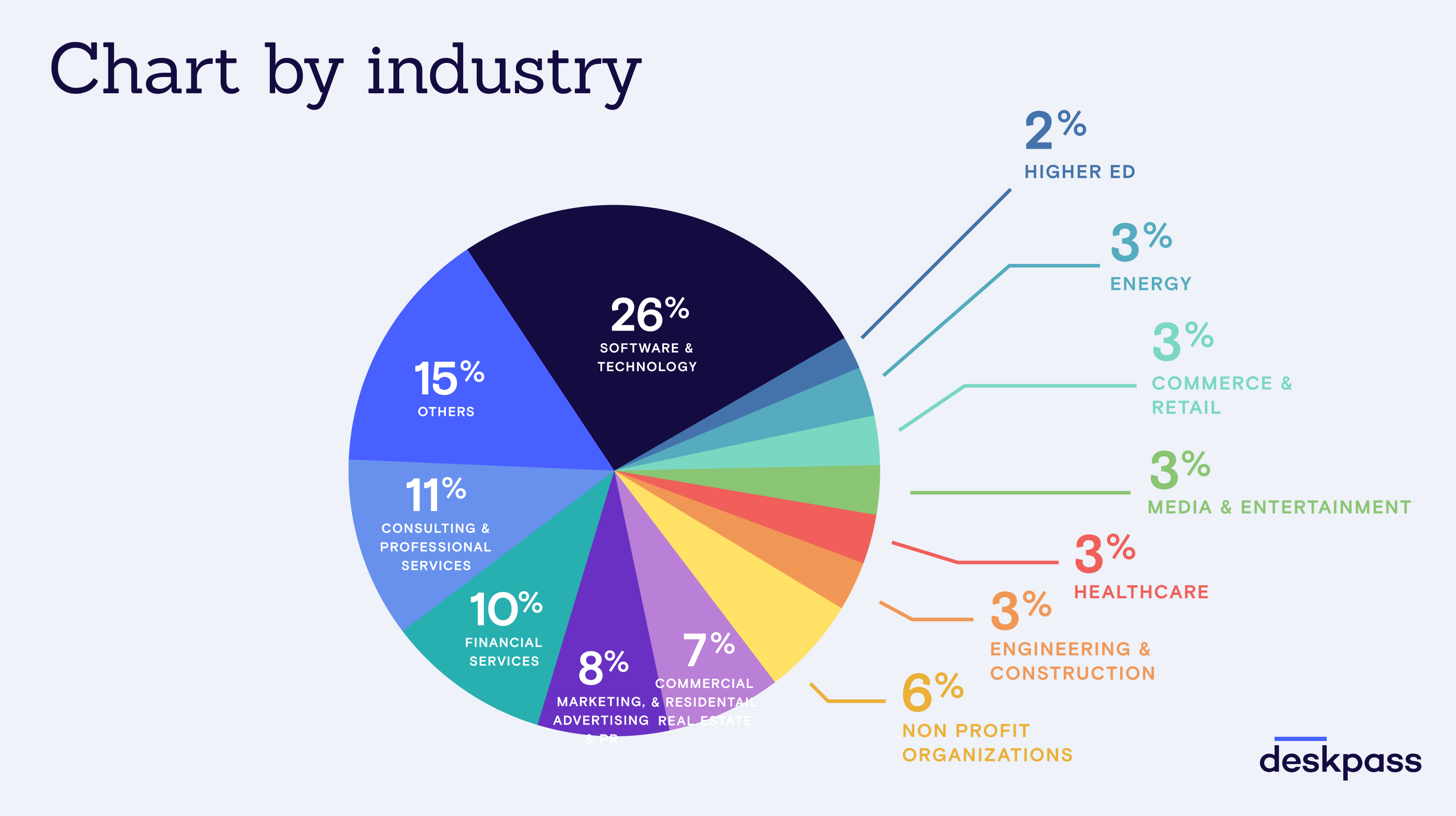
Real Estate Costs
With a national average of $38.67 per square foot, companies are rethinking their long term real estate planning; that’s a lot of overhead for office space that has been mostly vacant for the last 18 months. While some companies have reduced office space because of headcount reductions, many have reduced office space in favor of a hybrid work model and incorporated office hoteling.
From our survey, nearly 52% of respondents indicated their companies are either reducing or eliminating office space. Forty-three percent said there would be no change to their current office space and only 4% reported plans to increase office space.
It’s worth noting that for larger companies, eliminating office space entirely is complicated. Of the respondents who indicated that their organizations were eliminating office space entirely, 80% had fewer than 250 employees.
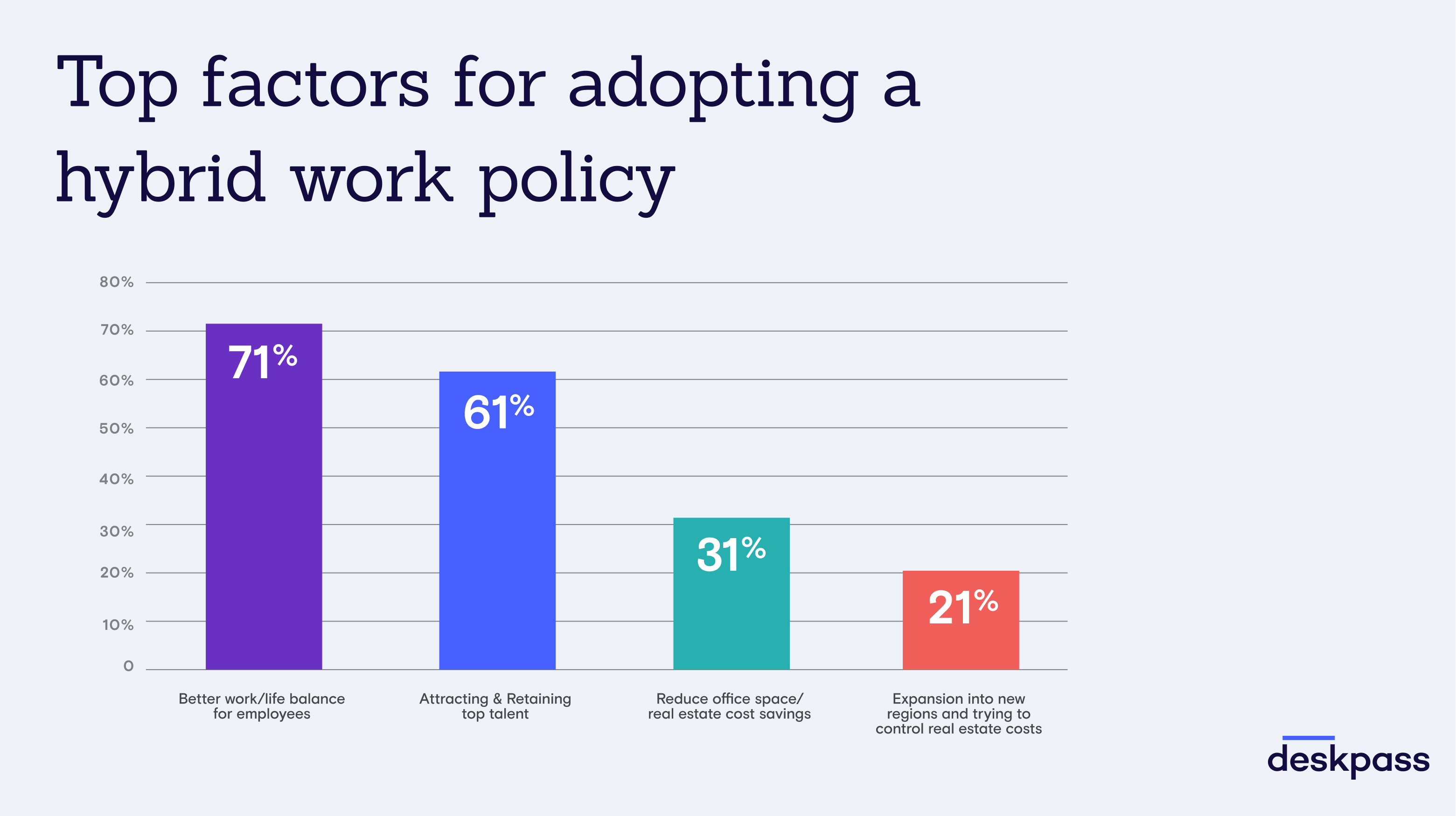
WFH Stipends
One trend we’re seeing is work-from-home stipends allocated toward remote workers. As reported on CNN, in Dropbox’s efforts to become a virtual first company, they distribute stipends so employees can curate their ideal office environment, whether that be at home, a coworking space or a combination of the two.
Currently, only 19% of our survey respondents reported receiving remote work stipends, and 65% of those respondents work at companies who are eliminating or reducing office space. Remote employees can save companies $11k annually on average, so we hope to see more stipend programs being rolled out in the near future.
One suggestion is to offer stipends based on department, industry, or the type of work employees do. For example, creative agencies need to meet together more frequently to ideate and collaborate, whereas sales or finance workers may just need quiet, private space (we have this feature in our Teams solution and see that companies set different spending limits for different groups).
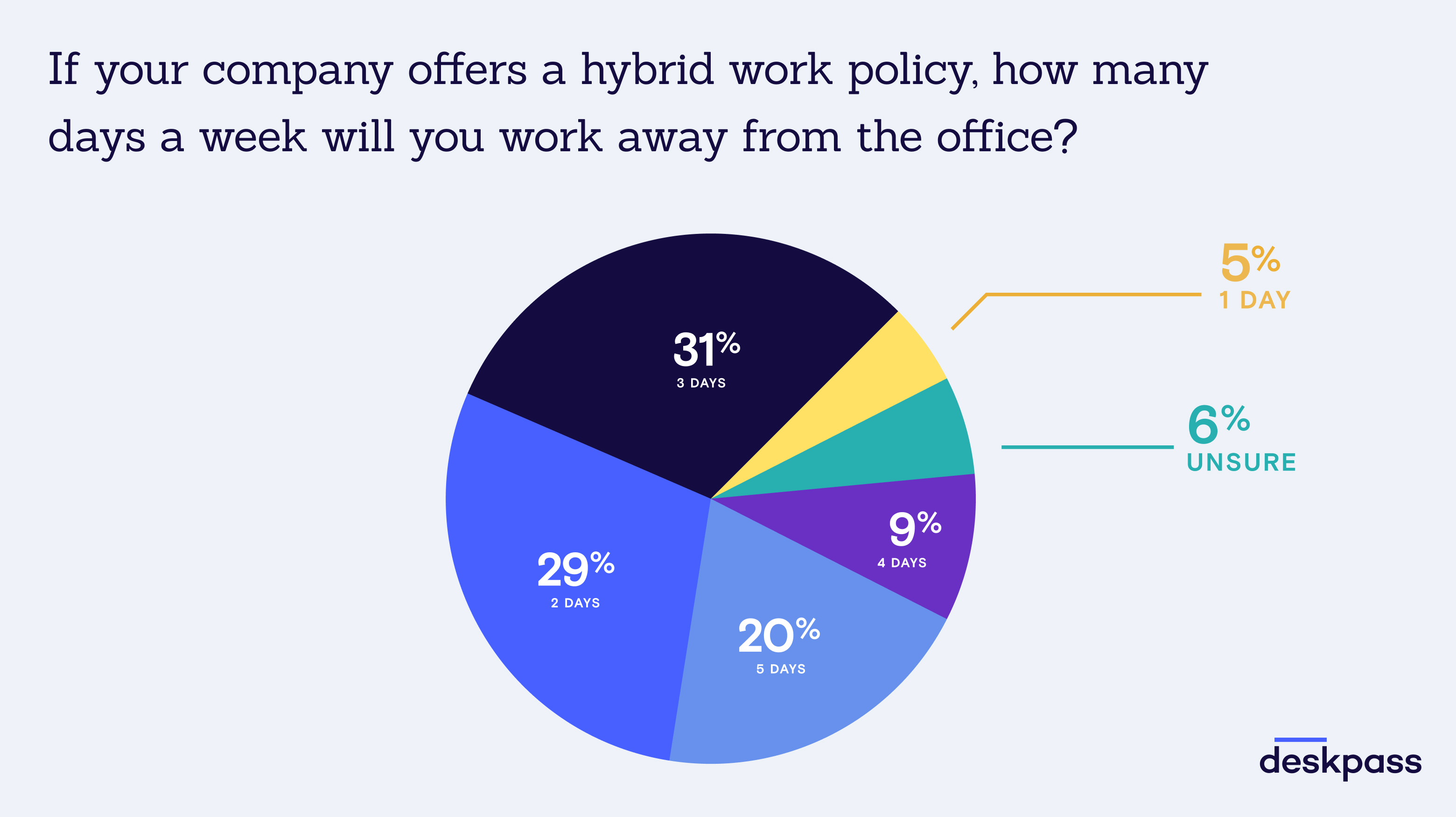
What hybrid work means for employees
Studies show that employees value flexibility in how, where and when they work more than anything else. The majority of our survey respondents (57%) have an average round-trip daily commute of less than one hour, in line with the national average of 55 minutes. This translates to 20 hours a month, or half of a full workweek that employees could be spending at home or on hobbies.
According to our survey, 79% of our respondents prefer to work remotely, either from home (62%) or a coworking space (17%), compared to 19% that still prefer working from the office. When you consider average commute times, 48% of those that prefer to work from home had an average daily commute prior to COVID of greater than 1 hour compared to 25% of those commuting to an office.
For those working from a hybrid model, more than half of respondents work from coworking spaces 2-3 days per week. These findings are in line with the results from a previous survey we sent out to our Deskpass Teams members. They indicated that on days where they aren’t reserving spaces with Deskpass, they prefer to work from home (96.7%), a coffee shop (30%) or their company’s office (10%).
On our network in particular, there’s an overwhelming preference of members choosing spaces based on its location and its proximity to their homes. This cuts down on commute time, while also creating space between their home and work lives (leading to a better work/life balance). Many members note that they enjoy walking or biking to the workspace and exploring the surrounding neighborhoods to visit lunch spots nearby.
Blurred lines between work and home often leads to employee burnout. Fifty-five percent of our respondents said they struggled to find a healthy work/life balance when solely working from home, with 52% indicating it was among their biggest challenges. A change in environment can spark creativity, boost motivation and enhance one’s overall mood.
Over the past few months and in response to the Delta variant, Deskpass members are utilizing the thousands of workspaces on our network and opting for private spaces that feel safer rather than returning to their home offices. They are willing to pay more—by reserving meeting rooms and private offices—in an effort to be safe.
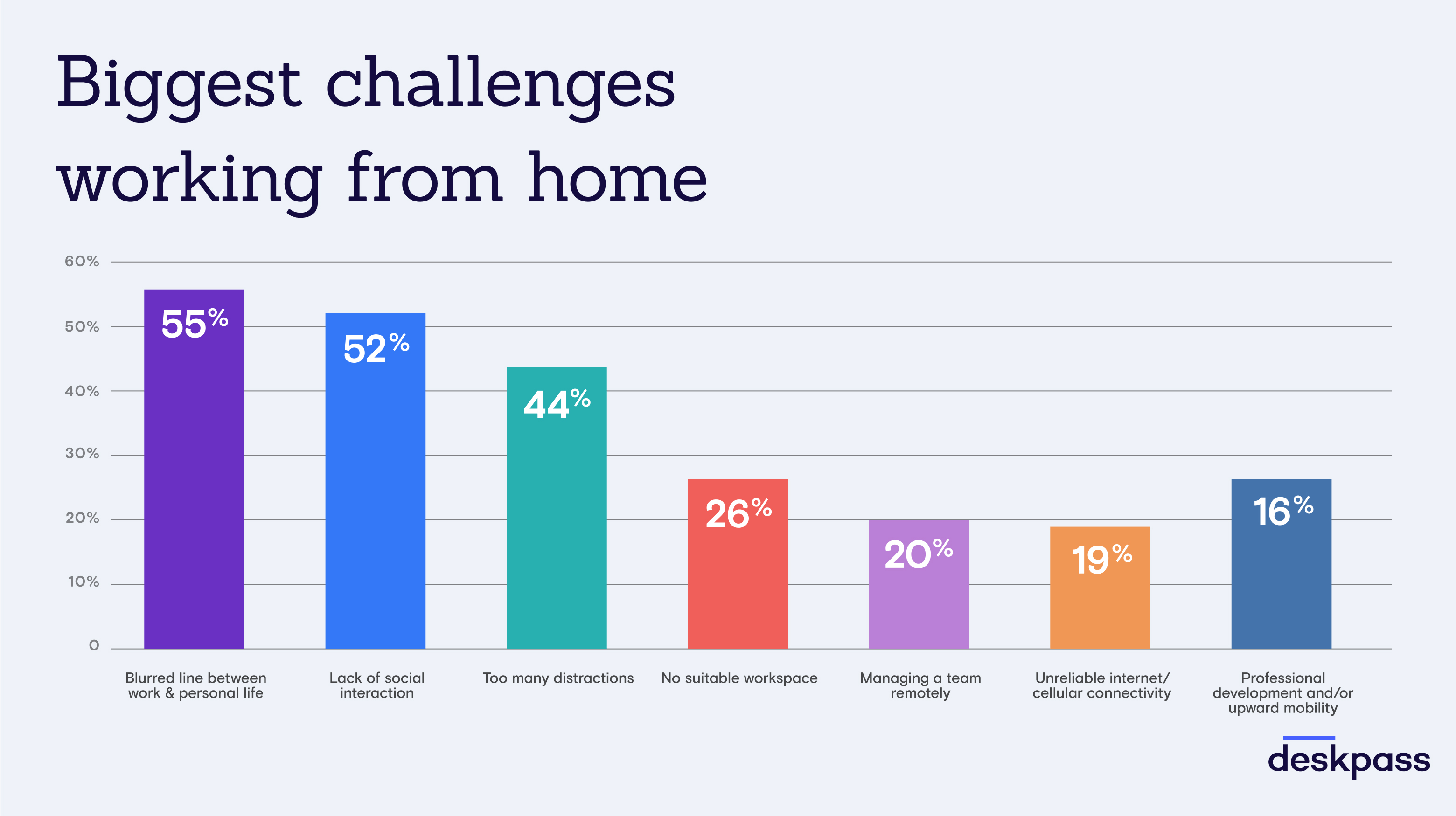
The impact of hybrid work on talent acquisition and retention
In a hybrid world, talent is everywhere and with location off the table, companies can now cast a wider net to secure top talent. Studies point toward work flexibility being a huge factor in whether a potential employee accepts a position, which means that companies looking to acquire and retain talent should comply.
The majority of respondents from our survey indicated that they would consider switching jobs if their company didn’t offer a flexible or hybrid work arrangement. Some respondents also indicated that they would accept lower salaries in a bid for more flexibility in where they worked. That said, remember that remote work is not a panacea and companies should also take employee engagement into account.
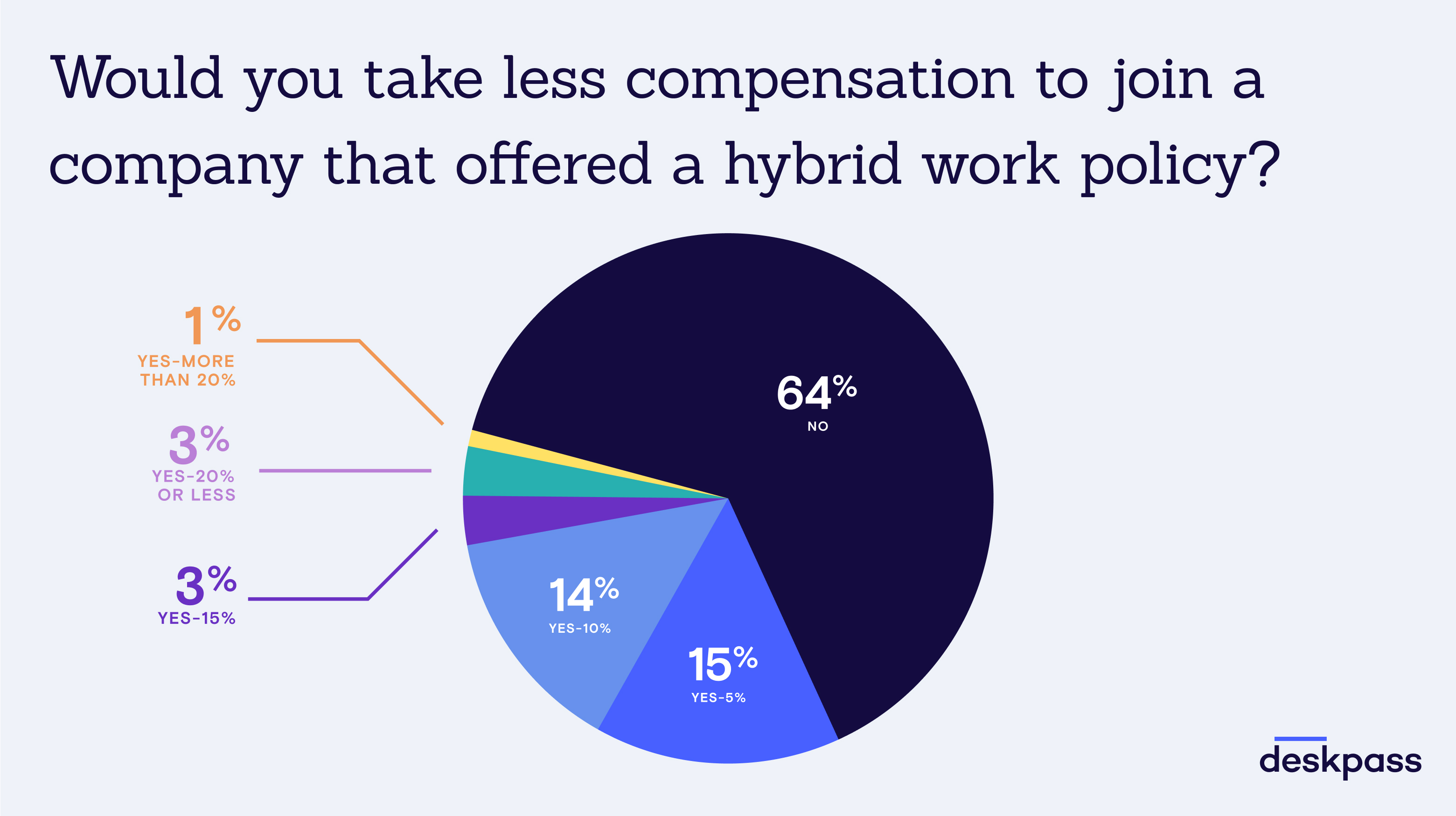
The Bottom Line
While COVID accelerated what was already an emerging trend toward a hybrid work model, it looks like it’s here to stay, at least for the foreseeable future. If you’re thinking about going hybrid, here is a comprehensive guide to making the transition as smooth as possible.
Get a complimentary $250 Deskpass credit when you sign up for a Teams account today.



